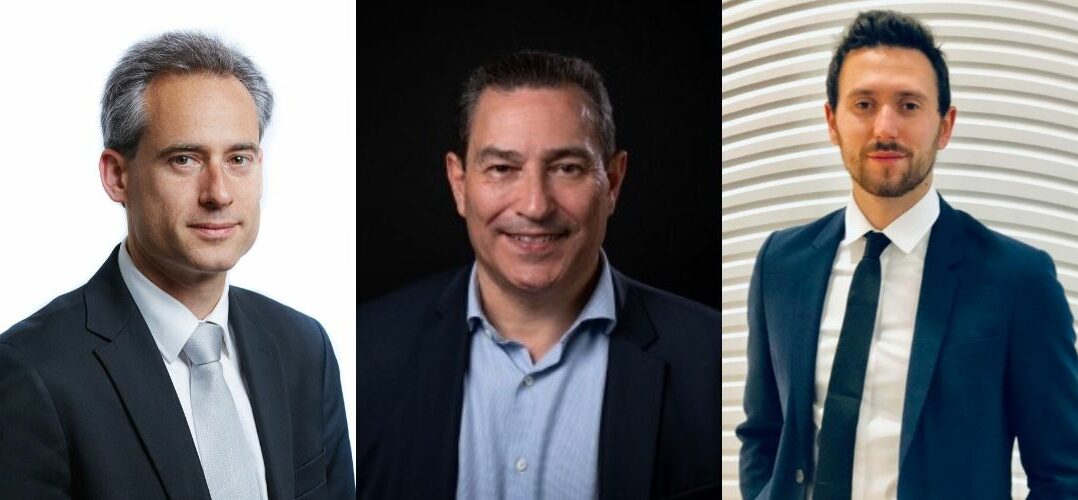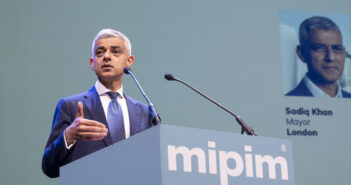This is the latest in a series of MIPIM Connect session reports from partner schools. In this post, France’s Paris 1 Panthéon Sorbonne reports on the Logistics Terminal Location session. Watch this and more on MIPIM Connect now!
The discussion during the ‘Logistics terminal location’ webinar on MIPIM Connect was articulated around two main questions: industrial and urban logistics. Principal speakers were Benoit Chappey, Head of Business Development at Goodman, a global property group, which owns, develop and manage industrial real estate in 17 countries; Brayane Obadia, in charge of international business development at E-Valley, a new European prime logistics hub located in the North of France; and Jean-Paul Rival, the CEO of Concerto, the logistics property development body of Kaufman & Broad group in France. It is a part of a non-residential division that encompasses office, retail and logistics.
The impact of Covid-19 across the supply chain.
The logistics has changed considerably since the time of the last world’s pandemic of the Spanish flu. Covid-19 has caused major disruptions across the supply chain.
Benoit Chappey spoke about the impacts of this disruption to the logistics sector, especially major changes for the industrial logistics in France and across Europe.
« The situation has forced the retailers to increase the sells online and develop even more e-commerce » – Chappey
Brayane Obadia highlighted the increasing popularity and necessity of logistics during this period. There are some downsides, especially the environmental concern.
« New logistics companies will have to find new means of transportation to respond to this challenge » – Obadia
Jean-Paul Rival pointed the tendencies that were particularly accentuated by Covid-19. It is the necessity of storage of products from other parts of the world to be able to have them on time. Automation was largely used as well, as it is a way of keeping the social distancing.
« Technology will be developing even faster now, because of digital and mechanical capacities in the industry » – Rival
When the global economy goes bad, logistics quite naturally suffer. Globally, all the tendencies indicated will still have their place in the future, however there will be more focus on the environmental and health issues.
Benoit Chappey believes that the investor’s interest in the e-commerce will grow in the future. Logistics will develop because of the need for resilience. « It is important that political authorities might become more open to the logistics developments as well, » said Chappey.
Brayane Obadia completed the discussion of this point by saying that the investments in the logistic assets indeed were considerable during this crisis. « In the pursuit of efficiency, companies will tend to more consolidate their warehouses and do more automation. On the short term, the price will not change, but in the long run the scarcity of land will be met, meaning that the prices will inevitably grow, » said Obadia.
Talking about the legal regulations, Jean-Paul Rival mentioned the environmental issues, notably the minimization of the consumption of the land. Because of new legislations, the access to new land will be more difficult. Benoit Chappey believes that the companies will face this issue by developing multilevel properties. « However, today it is still difficult to get the authorisation for this type of construction from the government, » said Rival.
On urban logistics, Obadia talked about the growth of the marketplace and the need to increase the surface of the last mile logistics.
« It has been proven that the logistics need to be closer and more efficient to the new expectations of the final consumers » – Obadia
Benoit Chappey presented that by 2050 more than two thirds of the population will live in big cities. Consequently, for example, there will be more demand for home food delivery. It will have an impact on the development of the last mile logistics. Jean-Paul Rival highlighted the consequences of modern trends on the way of construction of buildings and the automation. New shapes compatible with existing surroundings need to be invented.
Jean-Paul Rival mentioned that the governmental authorities should be convinced that logistics is chance and not only a compulsory difficult challenge, then the win-win option may be reached. Logistics has to be integrated and the best solution for this integration must be found.
« There is a need to create mixed uses and transform the city. For this, French regulations will have to be adapted » – Chappey
According to Brayane Obadia, if a company wants to shy nowadays, it will need to disrupt the way they are doing business, transport, etc. Companies should also do more stockpiles and innovate. New ways of transportation will be seen, and they will allow to increase the number of urban logistics.
In conclusion, Jean-Paul Rival defined the key of the future of logistics.
« It will need to be multimodal, multichannel and multiuser » – Rival
Using these principles is also a way to reduce the traffic and the pollution. It will influence the model of the future real estate and buildings that need to be developed. Brayane Obadia talked about the innovations that will appear in the future, aimed to reduce costs. Benoit Chappey’s final comment was about the fact that the development of urban logistics will go beyond the real estate. The cities will be organized differently to improve sustainability and ecological conditions.



